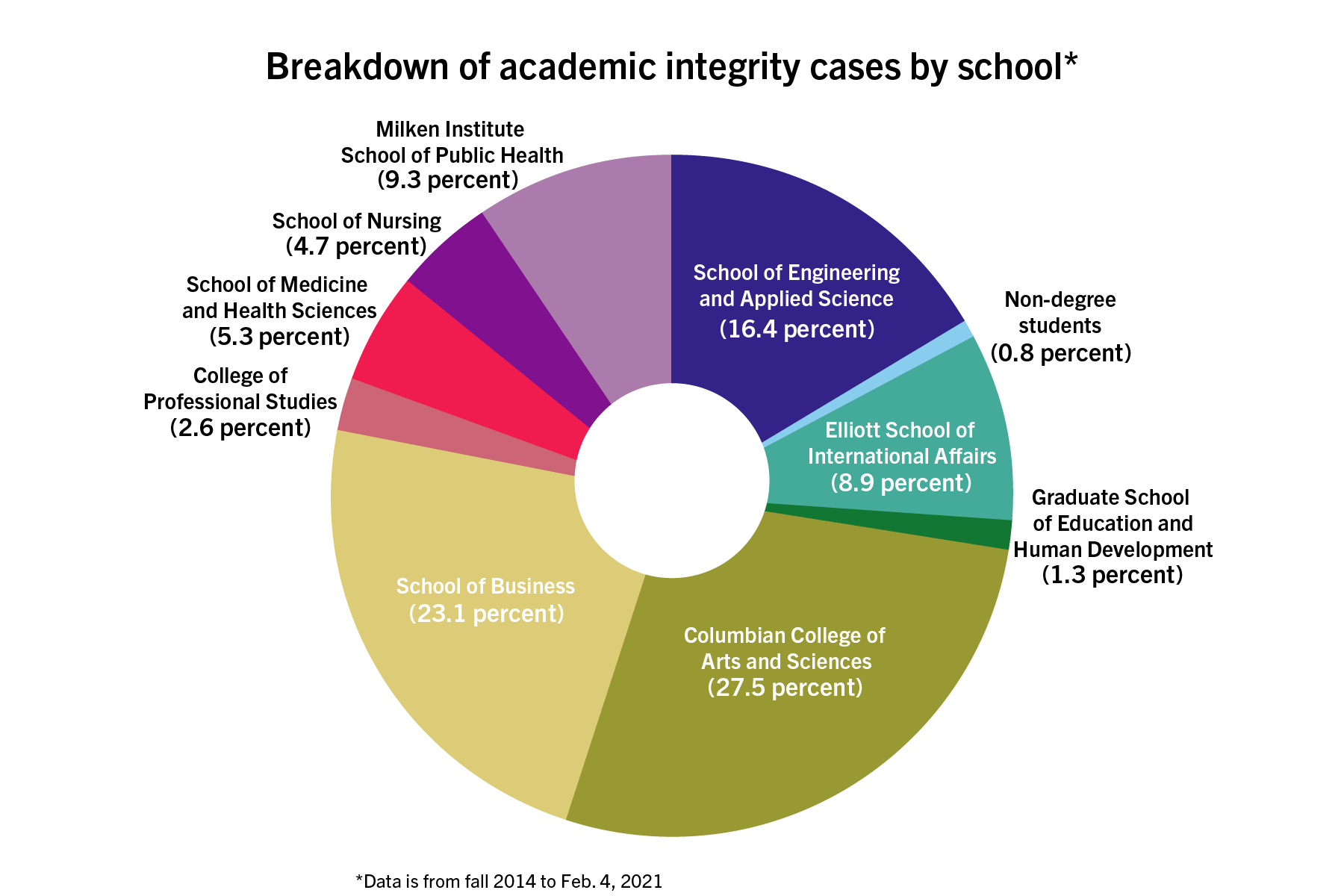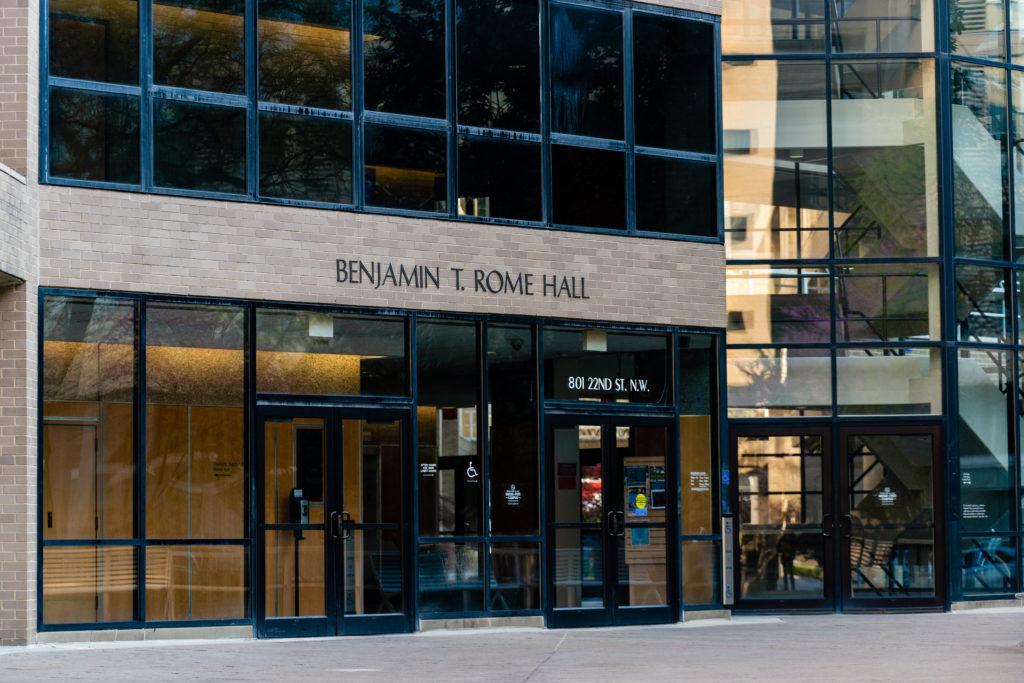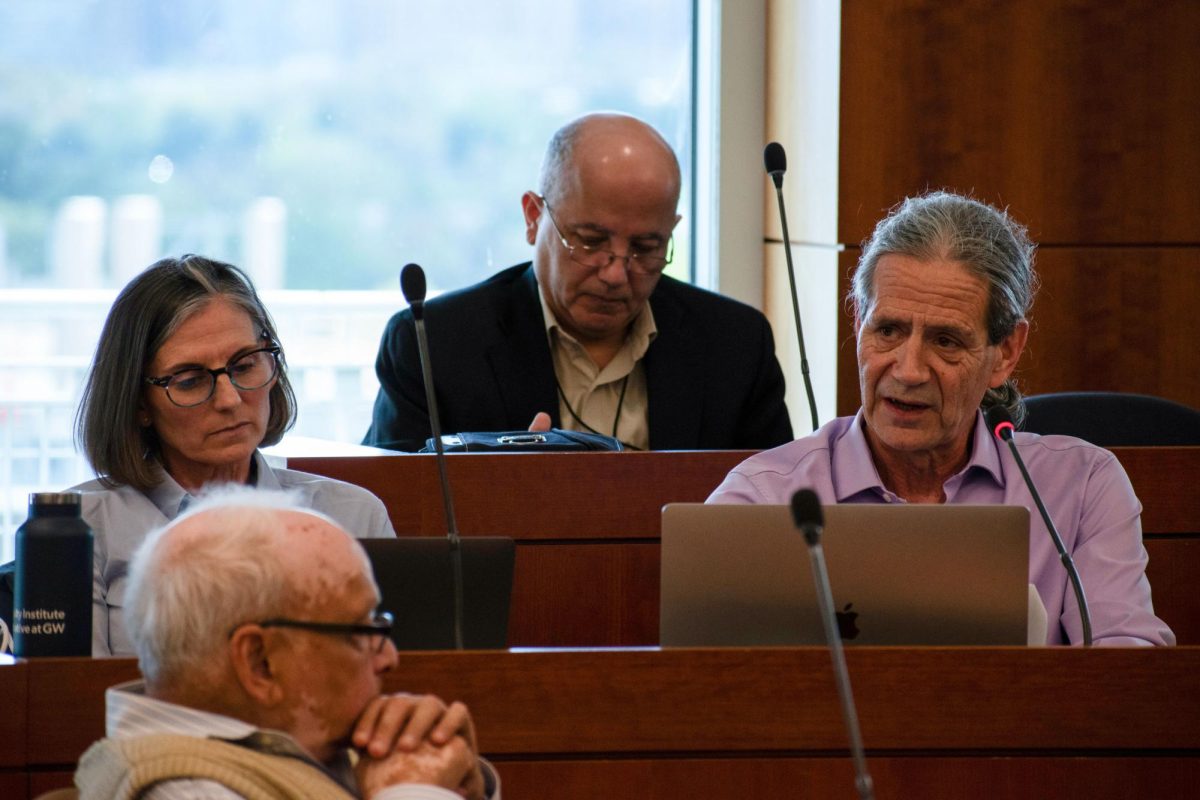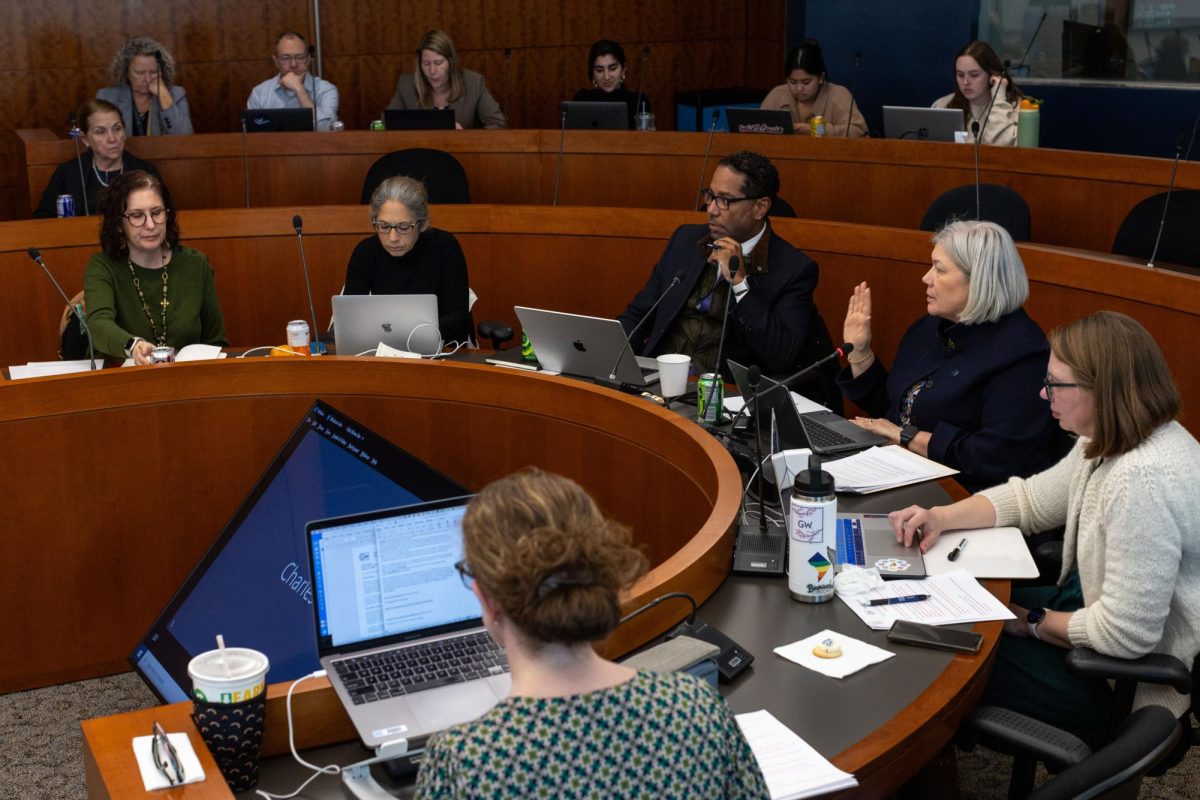Updated: May 17, 2021 at 12:37 p.m.
The number of academic integrity reports rose this year amid the virtual learning environment.
Christy Anthony, the director of the Office of Students Rights and Responsibilities, said the number of academic integrity cases, like cheating and plagiarism, has increased throughout the past year during the COVID-19 pandemic. Academic integrity experts said this rise could be attributed to students’ increased stress levels during online instruction and professors’ use of online proctoring technology with remote learning.
“We have seen an increase in academic integrity reports during the pandemic,” Anthony said in an email. “Whether this is due to increased faculty attention on academic integrity or an actual increase in violations is not clear, either from our data or from national/international research on academic integrity in remote learning environments.”
Anthony said cases in the Columbian College of Arts and Sciences make up nearly 28 percent of the academic integrity reports filed during the last seven years, with cases in the School of Business tailing behind at 23 percent. Reports from the School of Engineering and Applied Science ranked third with 16 percent, and the seven other schools each totaled less than 10 percent.
Anthony declined to share the number of academic integrity cases by year.
The business school academic integrity reports tripled to 40 cases in the 2019-20 academic year, compared to the 11 cases in the 2018-19 academic year.

Nicholas Anastacio | Graphics Editor
Anthony said officials don’t have indications that remote learning over the past year has driven the increase in academic integrity violations. She said trends show that students continue to decide against cheating or plagiarizing but find themselves more likely to cheat while “overwhelmed” with stress due to the circumstances brought forth by the pandemic.
“For this reason, we continue to encourage students to plan ahead, seek help and support and ask faculty for clarifications about assignment expectations,” he said. “We’ve also found more students in academic integrity cases benefitting from support resources like counseling to help manage the attending stress and challenges related to the pandemic.”
Anthony said the new changes to the Code of Academic Integrity, which the Board of Trustees approved last Friday, includes different sanctions for academic violations, like lessening the consequences for first-time offenders. The Faculty Senate passed a resolution in March to update the Code of Academic Integrity to implement more “educational” ways of addressing academic misconduct cases, like reducing the consequences for less severe cases and increasing the consequences for more severe cases.
Experts in academic integrity and ethics said cases have risen nationwide because students are stressed due to online learning from the pandemic and professors have more access to technology tracking programs that allow them to report academic misconduct cases more easily.
Camilla Roberts, the president of the International Center for Academic Integrity and the director of the Kansas State University Honor and Integrity System, said academic misconduct reports have more than doubled at Kansas State this year compared to two years ago. She said when students are stressed or under pressure, they may feel like they have no other option but to cheat on an assessment to pass the class.
“If it’s easier to cheat or to take a shortcut, then they’re more likely to do it,” she said. “And when you have the Internet right at your hands and you’re taking an online test, it’s easier than if you’re in a classroom and your students try to be sly about pulling out a phone or something.”
She said the rise of online testing programs like LockDown Browser may have contributed to the number of academic misconduct cases reported because they can electronically track when a student leaves the online test and how much time they spent on one question. She said more professors are using LockDown Browser to catch students cheating, which they cannot use for an in-person written exam.
“Professors are being more vigilant because they realize that it could be easier for students to do this and so they’re checking things more, but then there’s also a lot of metadata in online testing,” Roberts said.
David Rettinger, a professor and the director of academic integrity at the University of Mary Washington, said MUW officials have yet to officially report the number of academic misconduct cases this academic year, but so far they have seen an increase compared to previous years. He said faculty struggled to create good learning environments for students over the last year, which may have increased stress among students who may then be more inclined to cheat.
“You’re hearing a lot of students say things like ‘I really can’t learn in this environment,’ and some of that has to be because of the quick turnaround to online,” Rettinger said. “And then you add in the social psychology of it, so it’s a lot easier to be dishonest with someone who’s not right in front of you.”
Aly Colón, a professor of media ethics at Washington and Lee University, said students and professors need to define academic integrity to determine if misconduct has occurred, because while some professors believe students using their notes would be cheating, others might equate cheating with collaboration.
Colón said online tools for professors to decide whether a student is being honest can be helpful in “leveling the playing field” so that other students are not at a disadvantage by submitting honest work. He said his goal in his classes is to ensure that students understand the course material, even if that does not always reflect in their grades.
“The goal in my view is to educate, to open a student’s mind, have them think things through,” Colon said. “That process is more important to me than grades students get.”
This post has been updated to clarify the following:
This story has been updated to clarify the name of the University of Mary Washington.








